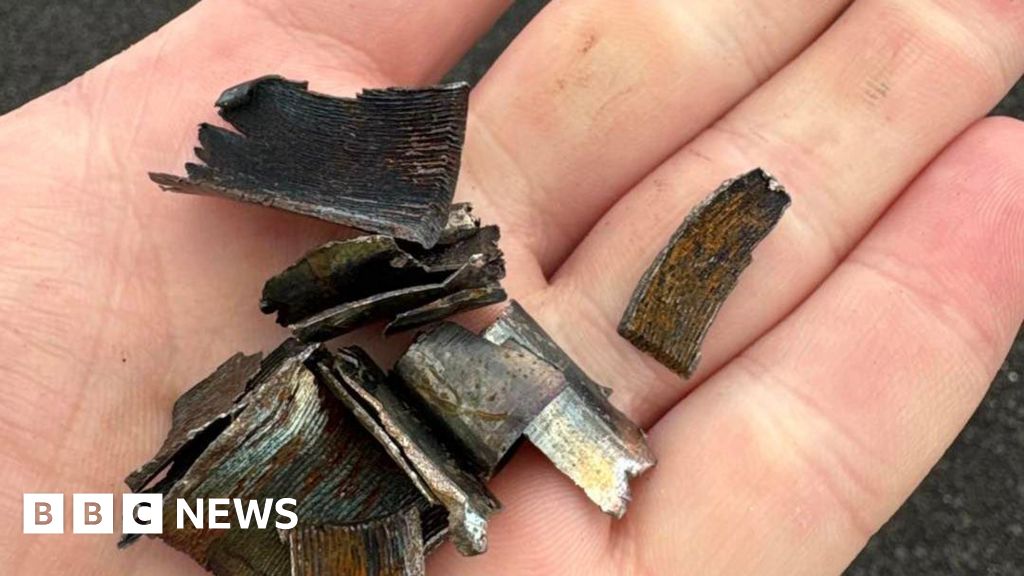Activist Simpson Oil poised to win Parkland boardroom battle
Open this photo in gallery: A boat travels past the Parkland Burnaby Refinery on Burrard Inlet at sunset in Burnaby, B.C., on Saturday, April 17, 2021.DARRYL DYCK/The Canadian Press Sir Kyffin Simpson tends to get his way. On Tuesday, the self-made billionaire from Barbados is poised to win a four-month boardroom battle at Parkland Corp., the Calgary-based owner of 4,000 gas stations and On the Run convenience stores. If directors backed by Mr. Simpson are elected at Tuesday’s annual meeting, a move endorsed by influential shareholder advisory firms, Parkland will have new leaders. The restructured board is expected to appoint a new chief executive officer to replace long-serving CEO Bob Espey and address what Mr. Simpson describes as years of underperformance. The odds of the one of the country’s largest retail chains - the owner of Esso, Chevron, Ultramar and Pioneer banners - being sold will rise dramatically. Open this photo in gallery: Bob Espey, president and chief executive office of Parkland, is photographed at the M&M Food Market head office in Mississauga, Ont. on Nov 29, 2022.Fred Lum/the Globe and Mail On Friday, Mr. Simpson’s family-owned company Simpson Oil Ltd. said more than 60 per cent of Parkland shareholders support its slate of directors. In a press release, Simpson Oil said: “Based on the proxies deposited with the company today, Simpson Oil expects that its nominees will hold a majority of seats on the company’s board.” For Mr. Simpson, aged 82, a vote for his board nominees will mark the success of a remarkable corporate coup. Until February, one of the wealthiest entrepreneurs in the Caribbean had no say at Parkland, despite owning a 19.8 per cent stake in the company, worth roughly $1.2-billion. The lack of clout stemmed from a standstill agreement signed by Simpson Oil when it sold a chain of Caribbean gas stations in two transactions - in 2018 and 2022 - for a combined $2.35-billion in cash and Parkland shares. As part of the sales, Simpson Oil agreed to take a passive role at Parkland. When Mr. Simpson announced the sale to Parkland in 2018, he said: “I have long admired Parkland as a company with their futuristic vision and energy, and I have been tremendously impressed with Bob Espey’s strong leadership.” Six years later, Mr. Simpson changed his tune. In February, he won the right to play an activist role at Parkland in an Ontario Supreme Court decision. Last month, Simpson Oil put forward a slate of nine directors for the Parkland board. The dissident shareholder said the Parkland board and Mr. Espey, who has announced plans to retire at the end of the year, “repeatedly missed guidance and consensus, experienced significant management churn, allowed expenses to spiral out of control, and pursued a deeply flawed M&A strategy that has stunted profitability.” Parkland and largest shareholder propose duelling slates of directors ahead of May 6 AGM Parkland elected a new chair last year, veteran oil industry executive Michael Jennings. In a recent interview, Mr. Jennings said the company has been unable to reach an agreement on governance with Simpson Oil. “The message back has always been one of control,” Mr. Jennings said. “We have tried like crazy. We have put a lot of different proposals in front of them. They come back with ‘if it is not control of the board, we will let the shareholders decide in the election.’” In March, Parkland launched a strategic review run by investment banks Goldman Sachs Canada Inc. and BofA Securities that could result in the sale of the company. If Simpson Oil’s directors join the board, analysts predict they will be more receptive to a takeover than the current board. In the summer of 2023, Parkland turned down an $8-billion takeover offer from Dallas-based Sunoco LP, one of the largest U.S. gas-station operators, The Globe and Mail reported. Parkland disclosed that it received an offer that undervalued the company, but provided no details on the bid’s size or source. Simpson Oil was in favour of selling Parkland to Suncor, according to sources familiar with the transaction. The Globe and Mail agreed not to name these sources because they are not permitted to speak for the company. From 2024: Parkland shares jump as investor signals it’s open to a sale Selling his fuel distribution business to Parkland marked part of Mr. Simpson’s legacy-defining move to cash in on an empire built over five decades. In 2022, he also sold a network of 50 car dealerships to a British auto retailer, Inchcape Plc, for an estimated $100-million. He continues to own real estate, including a large farm complex in Guyana. In the 1970s, Mr. Simpson quit his job as a store manager in Barbados and bought a single Texaco station. He went on to build a network of privately-owned string of auto dealerships and fuel distributors stretched across the Caribbean. If a car, boat or airplane filled its tank in the islands, outside Cuba, Mr. Simpson likely provided the gas. One fund manager who owns Parkland shares and has meet Simpson family members -the founder and his late wife Roberta Lady Simpson have five children - said the entrepreneur paid attention to advice consultants give business owners considering succession: Your kids don’t want your company. They want your money. Mr. Simpson is an evangelical Christian and one of his sons, Ward Simpson, is the CEO and a host at a religious broadcaster, called GOD TV. In a 2018 interview with his son on the network, Mr. Simpson said he planned to keep working as long as he could, as his businesses gave him a sense of purpose. He said, with a smile: “There is nothing in the scriptures about retirement.” The Simpson clan qualify as Caribbean royalty. Prior to her death in 2021, at age 84, Roberta Simpson wrote a children’s book called Nana’s Bible Stories. She enlisted her friend Sarah Ferguson, Duchess of York, to write a forward. The digital version is narrated by actor Jane Seymour, who starred in the 1973 James Bond film “Live and Let Die.” Mr. Simpson and Simpson Oil declined interview requests. In a statement, a spokesperson for the company said: “Simpson Oil is aligned with all shareholders in its interest to maximize value." Over the past week, Simpson Oil scored major victories in its fight for an increased role at Parkland, winning partial support from proxy advisory firms Glass Lewis and Institutional Shareholder Services. ISS is backing six of the nine candidates Simpson Oil nominated, while Glass Lewis endorsed seven of the dissident directors. Two of the nine nominees are Simpson Oil executives, the remainder are independent. Glass Lewis said in its report Parkland’s stock underperformed peers and “the board has consistently taken a defensive posture in response to shareholder pressure, rather than proactively addressing longstanding performance and governance challenges.” “We believe that meaningful change at the board level is warranted at this time,” said Glass Lewis. ISS reached the same conclusion in its report. In response to Simpson Oil’s campaign to put directors on the board, ISS said Parkland “engaged in a pattern of problematic tactics that have stifled the dissident’s ability to seek board change or otherwise improve the company’s prospects.”



















